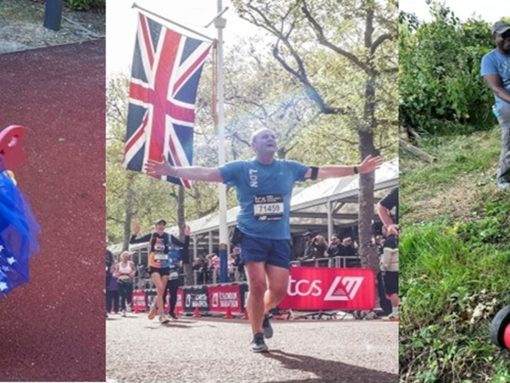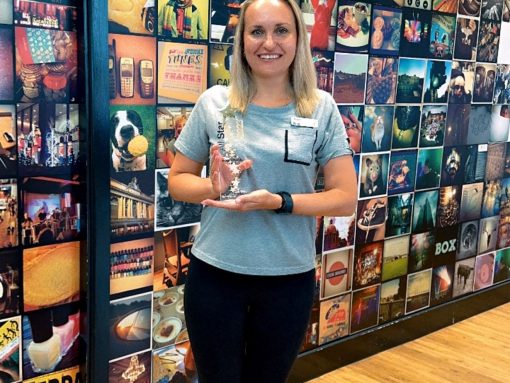Physical Training: an update on our Samaritans Marathon Runner
The London Marathon 2024 is now just a few months away we have been following the training journey of our golden ticket runner Alex Holmes. Alex is one of our Store Managers and was shortlisted and was selected by Samaritans to run this year’s race on behalf of our partnership.
This month we interviewed Alex to learn more about how training for a marathon can take its toll on the body and how best to be prepared.
So Alex, let’s talk about the physical aspects of training. We know you have completed Marathons before. Does that help make the prospect of this one easier?
Absolutely, I was so nervous the first time I completed the distance with doubts over if I would be able to finish, how I would get back to the start if I picked up an injury half way round etc etc. Knowing I have the distance ‘in me’ makes it easier but the scale of London Marathon still scares me a little bit, there will be more people and runners than I have ever seen before and the fact I live 6 hours away and don’t know the city all that well adds to this.
Are there set things that you aim to have achieved in your training at certain points in the run up to the marathon itself?
I am aiming to do a couple of 20 mile runs as I get into Feb March but other than that just to keep the mileage up.
What types of workouts do you do to train? Just running or any other workouts like strength training? Do you train daily?
I don’t have a lot of spare time so try to do a 13 mile run mid week and a 7-10k with my son at a steady pace on a weekend. I cycle 5 miles every day as part of my commute and try to swim a couple of times a month. Other than a few push-ups and pullups I don’t do any strength training and haven’t been inside a gym in 2 years.
Any advice to a new runner on how much running you think someone should do before signing up for a first-time marathon?
Listen to your body and start slow. It’s amazing how quickly your body adapts but it’s so easy to pick up an injury if you go too fast or too far early on and that can spoil the enjoyment and put you off. You should be able to hold a conversation at your jogging pace, if you can’t, slow it down and build up the speed gradually. Enjoy the scenery and being out in the fresh air. If you find it boring a running buddy can help to pass the time.
Have you had a particularly good run recently? What made it a good one?
I did a half marathon on New Years eve with a reasonable time. It was good to blow off the cobwebs from Christmas and know that all the sweet treats and drink hadn’t knocked my progress too badly.
What do you hope to achieve from running this marathon?
First and foremost, raising awareness and funds for the Samaritans. From going around friends and family and sharing updates on here it reminds people of the amazing work that they do. On a personal note, it’s a bucket list item for me and a run I’ve wanted to take part in ever since my secondary school geography teacher did it to raise funds for the NSPCC 20 odd years ago.
We know from a previous interview that you’ve hit a wall when running but have pushed on through. Have you had any bad running experiences during your training? How did you bounce back from them?
I’ve become much better at ‘fuelling’ my runs and always carry some energy gels just in case. My worst experience recently was just a slip and fall along a bridlepath. I wasn’t hurt but I got covered completely in mud and must have looked a right state!
Thanks to Alex for his time and don’t forget, here’s the link to donate if you want to support him: https://2024tcslondonmarathon.enthuse.com/pf/alexander-holmes


